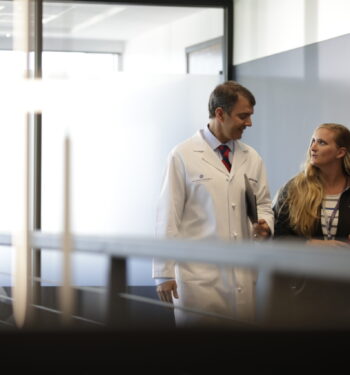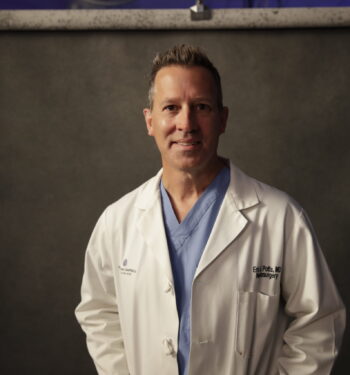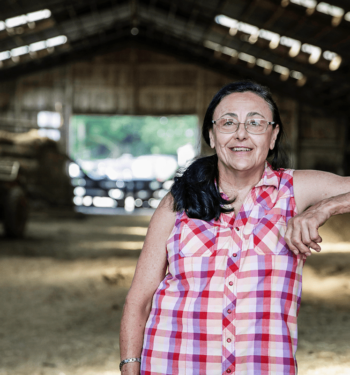May 15, 2018
Excellent spine care is the result of a commitment to lifelong learning. As the field advances, and technology improves, it’s critical for physicians to keep up with new developments. But even in a field that demands this kind of dedication, Dr. Jean-Pierre Mobasser stands out for his early start.
“When I was a teenager, I used to go to the hospital with my dad, who is an OB/GYN, and follow him around. They didn’t quite have the regulations they do now, so I could scrub in on his cases, as long as it was ok with the patient and family,” said Dr. Mobasser. “I followed that interest to medical school, where neurosurgery grabbed my attention. I loved the complexity and diversity of the field.”
Dr. Mobasser, who currently serves as president of Goodman Campbell Brain and Spine, eventually found his specialty in minimally invasive spine surgery. These procedures require skill, sophistication, and a commitment to lifelong learning.
“I’m a believer that there’s always a way to improve any procedure” said Dr. Mobasser. “For example, there’s a specialized procedure I’ve performed for 14 years called a minimally invasive lumbar interbody fusion. Every year, I try and find a way to improve it. In a technology-driven field like neurosurgery, you should not settle for doing things the way you’ve always done them. You should constantly be learning and trying to improve any surgical procedure.”
Improving Spine Care Patient Outcomes
This drive to improve has also led Dr. Mobasser and his colleagues to develop more effective spine surgery protocols on a national level, including those he presented at the American Association of Neurological Surgeons annual national meeting.
After observing a spike in surgical site infections at their Level 1 Trauma Center in 2008, Goodman Campbell worked with the hospital and infectious disease doctors to investigate and identify the underlying problems. Once discovered, they developed processes and protocols to correct them.
“If you don’t have a standard method for treating patients, everyone struggles,” said Dr. Mobasser. “Physicians develop their own individual methods of treatment, but our group was effective at putting our individual biases aside, and standardizing patient care to improve patient outcomes.”
At Goodman Campbell, Dr. Mobasser sees a willingness to learn and be challenged as part of the culture.
“The result of being a training facility with a strong academic arm is that you are constantly surrounded by people committed to learning,” said Dr. Mobasser. “That motivates you to educate yourself on the latest developments within all the neurosurgical subspecialties. The physicians at Goodman Campbell all share that mentality.”
The Experts in Spinal Procedures
Goodman Campbell’s physicians build their expertise on a firm educational foundation—neurosurgeons will spend as much as 60-70% of their seven-year residency caring for patients with spinal conditions.
“You graduate from a neurosurgical residency with a tremendous advantage, not just in knowing how to perform procedures but also in being able to evaluate who needs surgery, or how to help patients do well in recovery,” said Dr. Mobasser. “At Goodman Campbell, we don’t limit ourselves to just routine spine surgeries, we perform the complex spinal procedures that no one else wants to do.”
These procedures include: minimally invasive spine surgery, image-guided spinal navigation surgery, spinal tumor surgery, spinal trauma surgery, artificial disc surgery, and the traditional spinal degenerative surgery. It is work that requires a profound level of expertise—but that’s where Goodman Campbell excels.
“With the team of physicians we have, we’re in a position to drive changes at a national level, which means there’s an onus on us to advance care in neurosurgery across all fields,” said Dr. Mobasser. “We take that seriously. We are committed to taking a critical look at how things are currently being performed, and how they can be improved.”



